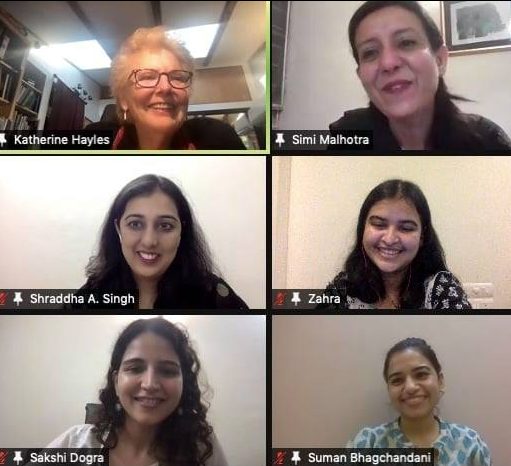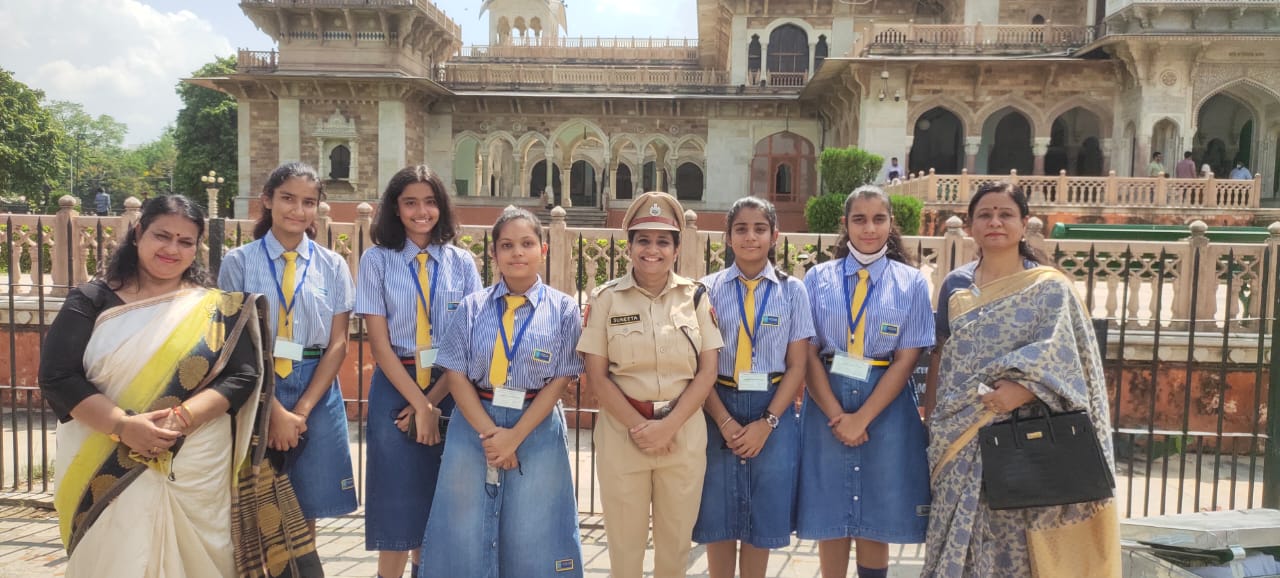
The Department of English, Jamia Millia Islamia (JMI), organized the eighth lecture of the Distinguished Lecture Series,“Planetary Reversal: Liberal Philosophy versus Ecological Reciprocity”by Prof. N. Katherine Hayles, Distinguished Research Professor at the University of California, Los Angeles, and the James B. Duke Professor Emerita from Duke University,onWednesday, 22nd September, 2021, 8:30-9:30 PM ISTon Zoom.
Supported by the Scheme for Promotion of Academic and Research Collaboration (SPARC), Ministry of Education, Government of India, the talk was organized as part of the ongoing academic collaboration with the Department of English and American Studies, University of Würzburg, Germany, and promises to be one in a line of successively pertinent lectures.The talk was conducted by Ms. Shraddha A. Singh, Ms. Zahra Rizvi, and Ms. Suman Bhagchandani, Ph.D. scholars, Department of English, JMI, and was enthusiastically attended by a large crowd of scholars, students, and faculty from all over the world and across various time-zones.
Prof. Simi Malhotra, Head, Department of English, JMI, Indian PI, delivered the welcome address, greeting the invited speaker, faculty, scholars, and students. She spoke about the talk as a part of the ongoing collaborative project between the Department of English, Jamia Millia Islamia and the Department of English and American Studies, University of Würzburg, on “New Terrains of Consciousness: Globalization, Sensory Environments and Local Cultures of Knowledge”, supported by the Ministry of Education’s initiative SPARC, “Scheme for Promotion of Academic and Research Collaboration” which aims to facilitate academic and research collaboration between higher education institutes in India and abroad.She, then, introduced the esteemed speaker, Prof. N. Katherine Hayles, who was greeted by a round of applause. Through her lecture, Prof. N. Katherine Hayles underscored the utility of linking mechanisms in responding effectively to ongoing environmental crisis.
She argued that the disjuncture between the meso, micro and macro scales, induces indifference to contemporary challenges such as global climate change. Her in-depth analysis of Kim Stanley Robinson’s The Ministry for the Future examined how the novel dramatizes the potential of linking mechanisms in connecting the three levels and thus bringing about ecological reciprocity. For instance, she discussed the notion of carbon coins (a currency that finds representation in Robinson’s novels) which by virtue of its purported intent of controlling carbon emissions could link capitalism to the health of the planet. In conclusion, Prof. Hayles emphasized the notion of response-ability and distributed cognition in the generation of ecological reciprocity.
This was followed by an engaging, in-depth Q/A session coordinated by Ms.Sakshi Dogra, Ph.D. Scholar, Department of English, JMI. The event was brought to an end with a vote of thanks by Ms. Zahra Rizvi.To ensure a wide range of viewership and participation, the event was also live streamed on YouTube, and was attended by over a hundred participants.
";

